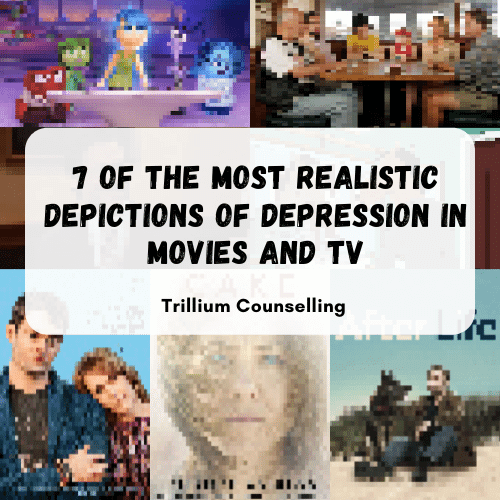Can You Recognize The Signs of Narcissistic Abuse? - Trillium Counselling
It’s normal to have problems in a relationship. But if someone you love undermines your sense of self-worth, emotionally manipulates you, and convinces you that everything is your fault, then you’re dealing with something much darker than normal conflict.
Some people have a condition called narcissistic personality disorder (NPD), which shows itself as an inflated sense of self-worth, an unusually high need for attention, and a lack of empathy for others. None of that sounds healthy, but the real problems come when someone with NPD is in a relationship with another person.
People who experience narcissistic abuse suffer from so much emotional manipulation and criticism that they often aren’t even sure who they are anymore. This leaves them feeling lost and helpless to change what’s happening to them.
But if you feel trapped in a relationship (or if you recently got out of a relationship) with someone with NPD, there is hope. With counselling and support, you can recover your sense of self and feel worthy of love again. The first step is understanding what’s happening. If you suspect you’re a victim of narcissistic abuse, here are some signs to look for.
Common Behaviours of Narcissistic Abusers
Not all people who are abusive have NPD, and not all people with the disorder will exhibit these symptoms. But according to Med Circle, here are some signs of narcissistic abuse.
They come on strong.
Relationships with people with NPD often become intense very quickly. Romantic partners will sweep you off your feet soon after meeting. They shower you with overwhelming displays of love and admiration. This is known as “love bombing” and it leaves you even more vulnerable to what comes next.
Without warning, the abuser will become distant, critical, and mocking. They may use sarcasm or jokes to put you down, and nothing you do is good enough. This doesn’t just happen in romantic relationships. Parents with NPD often lavish attention on their children, then they revert to a cold, critical, dismissive attitude.
This cycle repeats itself, reeling you back in when you’re ready to give up on the relationship, then returning to rejection when you’re starting to feel safe. This pattern leaves you insecure and desperate to win back their approval. You know they care; you’ve felt it in the past.
They’re emotionally manipulative.
When you object to what they’re doing or tell them they’ve hurt your feelings, abusers will do everything they can to dismiss your feelings. They may lie about what happened, saying that you’re making things up. Or they may react with rage at being accused, insisting that if you loved them you wouldn’t attack them like this. They may even burst into tears and act deeply wounded by your words.
However they do it, the end result is that you end up focused on their feelings instead of your own needs.
How victims of narcissistic abuse often react
One of the insidious things about this kind of abuse is that the abuser will blame their victim for reactions they’ve tried very hard to get from them. But the confusion, pain, and self-doubt that comes from this treatment is a natural reaction to what’s happening. According to Healthline, these are some common reactions to narcissistic abuse.
They feel ashamed.
A narcissistic abuser invests a great deal of effort into convincing you that you’re wrong, inadequate, and dependent on them. It’s understandably difficult to reach out for help when you’re convinced that you’re the problem.
Shame is a different emotion than simply feeling guilty or bad about a choice. Someone who is ashamed feels fundamentally wrong, and they want to hide their failures from other people. This is the abuser’s goal. Shame easily leads to the next symptom.
They feel isolated.
When someone feels so much shame and insecurity, it’s very difficult to tell other people that they’re struggling. On top of that, abusers often engage in a campaign to destroy relationships. They may spread hurtful lies about their victims, or try to convince them that their friends never cared about them and can’t be trusted.
By the time someone is in enough pain that they’re ready to talk to someone about it, they feel like there’s no one left in their life to help them.
They don’t know what they want or who they are.
This controlling, manipulative behaviour leaves victims feeling deeply unsure of themselves. When they’re criticized for all their choices, both large and small, it becomes very difficult to trust their feelings. Eventually, they feel disconnected from their own desires and sense of self.
How can you escape narcissistic abuse?
According to Psychology Today, there are three main steps to protecting yourself and healing from this abuse.
Identify what’s happening.
Understanding what you’re dealing with is vital if you’re going to move forward. It’s important to know that although it’s possible for people with NPD to change, it’s very, very difficult for them. They must be highly motivated to deal with their behaviour, and the nature of the disorder makes it hard for them to think they need to change.
Given the intractable nature of NPD, you must accept that you cannot help them. Continuing to participate in their illness by being abused will never change their problems. Gaining a clear picture of the patterns of narcissistic abuse can help you clarify what is true — about you and your options.
Create a support system.
You need a safe person to help you sort out truth from fiction. Having someone you trust who can reflect back reality to you can be invaluable.
An important fact to keep in mind is that if your abuser realizes that you’re becoming resistant to their tactics, they may escalate the abuse. It’s possible that you will need a safe place to escape to.
Rebuild your strength and learn to protect yourself.
It takes time to unlearn the lies you’ve been told about yourself and your worth. You’ll also find that you have adopted behaviours to protect yourself, but they no longer serve you. You can re-write what you believe and create the life you long for.
All of these steps can be supported by a compassionate therapist. If you are struggling with the effects of narcissistic abuse, contact us today.
%20(1).png?width=200&height=80&name=Trillium%20Counselling%20Logo%20(999%20x%20398%20px)%20(1).png)


